#Cave of the Apocalypse
Explore tagged Tumblr posts
Text
A Photo Essay: Following the Path of Apostle Paul - Day 6
Skala on the island of Patmos, Greece. We hated to leave Samos. We enjoyed it so much. Nevertheless, we were up early again to catch the ferry to our next adventure, the island of Patmos. The island hopping via ferry began in earnest. I took a few photos of Pythagereio as the ferry sped away. We stopped at a few small island villages to pick up and drop off passengers. The island ferries have…

View On WordPress
#Bruce Stambaugh#Cave of the Apocalypse#Greece#island hopping#Monastery of St. John the Theologian#Patmos#Roadkill Crossing
2 notes
·
View notes
Text
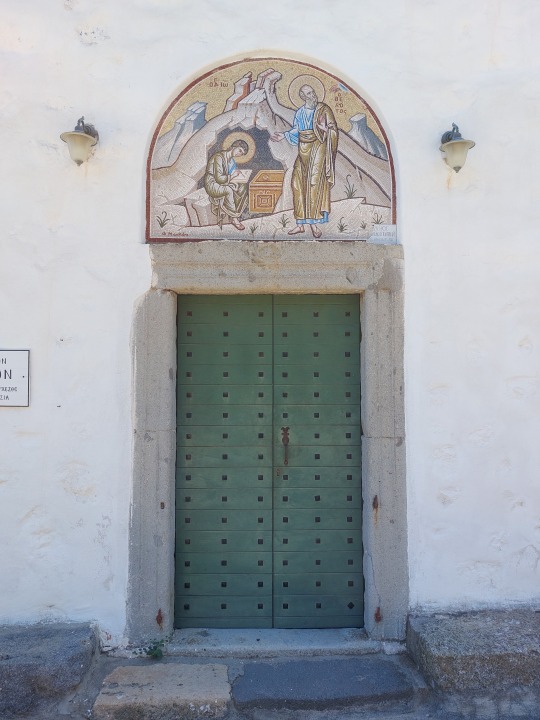
The Cave of the Apocalypse is located approximately halfway up the mountain on the Aegean island of Patmos, along the road between the villages of Chóra and Skala.
This grotto marks the spot where the exiled St. John of Patmos received his visions that he recorded in the Book of Revelation during a time of persecution under the Roman rule of Domitian in the late 1st century.
In John's visions, notice Rome wasn't even acknowledged or addressed by Jesus in his letters to the seven churches of Asia (modern day Turkey) which formed the basis for early Christianity because Rome has always been the great Harlot masquerading as the "one true church" of Jesus Christ. Rome has always persecuted and murdered true Christians. Many Biblical scholars and Pastors have drawn parallels between Revelation 17 and the persecutions of Bible Believing Christians by Rome identifying Roman Catholicism as "MYSTERY, BABYLON THE GREAT, THE MOTHER OF HARLOTS AND ABOMINATIONS OF THE EARTH" drunken with the blood of the saints, and with the blood of the martyrs of Jesus.

https://biblehub.com/kjv/revelation/1.htm https://www.gotquestions.org/Patmos-in-the-Bible.html https://en.wikipedia.org/wiki/Cave_of_the_Apocalypse https://www.conservapedia.com/Book_of_Revelation https://en.wikipedia.org/wiki/John_of_Patmos https://www.conservapedia.com/Inquisition https://en.wikipedia.org/wiki/Inquisition https://en.wikipedia.org/wiki/Patmos Questions About Eternity in Heaven and Hell https://www.gotquestions.org/content_eternity_heaven.html https://www.gotquestions.org/content_eternity_hell.html
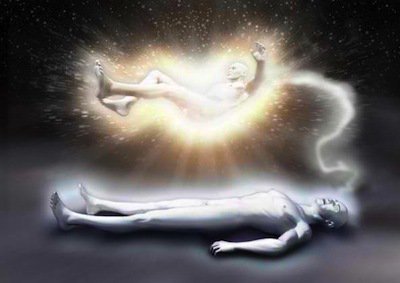
Revelation 21 (The 12 Foundation Stones in New Jerusalem) http://www.preciousstonesofthebible.com/stonegallery.html https://near-death.com/city-of-light/
What Happened to the Seven Churches of Revelation? https://www.imb.org/2018/06/01/what-happened-to-the-seven-churches-of-revelation/ https://www.gotquestions.org/seven-churches-Revelation.html https://en.wikipedia.org/wiki/Seven_churches_of_Asia https://www.bible-history.com/maps/7_churches_asia.html https://lifehopeandtruth.com/prophecy/revelation/seven-churches-of-revelation/ https://www.biblestudy.org/maps/the-seven-churches-of-revelation-map.html https://www.friendshiptours.com/what-are-the-seven-churches-of-revelation-where-are-they-located/
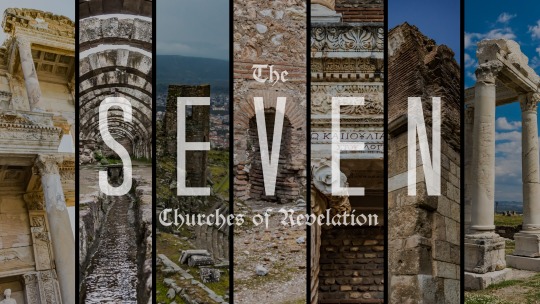
Get a fresh perspective on the book of Revelation and Jesus’ message to churches in all times. Visit the ancient sites of the seven churches described in Revelation. Gain insights into God’s love for the world, His warning and correction for the churches, and His hope and encouragement for the future. A perfect resource for individual or small group study: https://youtube.com/playlist?list=PLPOUA7GLxXIG-Cc84xHWAB9dw25R2Og3Y

In a historic final interview, filmmaker Aaron Russo goes in depth on the insider knowledge given to him by a member of the Rockefeller family: https://www.banned.video/watch?id=62a0c0b6f3feec02cafe1bb3 Federal Reserve System: https://www.conservapedia.com/Federal_Reserve_System https://www.jesus-is-savior.com/Evils%20in%20Government/Federal%20Reserve%20Scam/federal_reserve_is_evil.htm 9/11: https://www.jesus-is-savior.com/Evils%20in%20Government/911%20Cover-up/911.htm https://www.banned.video/channel/richardgage911 Feminism: https://www.conservapedia.com/Feminism https://www.jesus-is-savior.com/Evils%20in%20America/Feminism/feminism_is_evil.htm Destroying the family: https://www.conservapedia.com/Destroying_the_family Public school culture: https://www.conservapedia.com/Public_school_culture Government: https://www.conservapedia.com/Government World Debt Clock: https://usdebtclock.org/world-debt-clock.html Mark of the Beast: https://www.markofbeast.net/ https://www.conservapedia.com/Number_of_the_Beast https://biblehub.com/kjv/revelation/13.htm
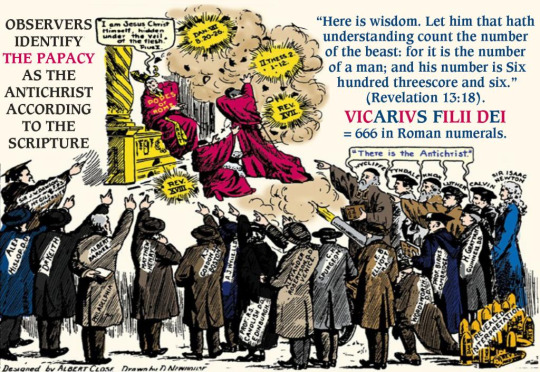

#Cave of the Apocalypse#Patmos#Revelation#Bible#God#Jesus#7Churches#John#Exile#Visions#EndTimes#Mark of the Beast#666#Number of the Beast#Sabbath#Mystery Babylon#Mother of Harlots#New World Order#Evil in the Last Days#Money#Greed#Narcissism#Destruction of the Family#Feminism#Federal Reserve#Heaven#Hell#New Jerusalem#Lake of Fire#Revelation17
4 notes
·
View notes
Text
Floornight and Almost Nowhere are "diurnal," The Northern Caves and The Apocalypse of Herschel Schoen are "nocturnal."
My next work of fiction, whenever it does arrive (I am going to take a good long break first), will definitely be "diurnal." The "nocturnal" ones are painful to write in a way the "diurnal" ones aren't, and I don't want to go through that again for a long time, if ever.
[With only the slightest hint of irony] You take my meaning, of course.
#floornight#the northern caves#almost nowhere#the apocalypse of herschel schoen#is this overfitting to a few data points? possibly.#but there you have it.
104 notes
·
View notes
Text
No because I’m serious Jayce Talis must have those foretold hot girl tummy issues because for what other reason did the animators feel the need to show him puking on 3 separate occasions??
#arcane#crack#jayce talis#jayce arcane#jayvik#humor#thoughts#the bridge scene with the dead enforcers#when he first transported to apocalypse world#and in the montage in the cave with the newts#tw emetophobia#give that man some zofran#arcane rewatch
29 notes
·
View notes
Text


For the girl you have in that merry green land
Can wait forever for you to come home
just a lil homage to the music video with the most chemistry while I don't have any new ideas~
#oc#vtm#vampire#vampire the masquerade#vtm oc#vampire: the masquerade#werewolf#vampire the masquerade bloodlines#tzimisce#world of darkness oc#werewolf the apocalypse#vtmb#white howler#nick cave#pj harvey#henry lee#Mészáros Mina#henrik andrás#Arcturus Art.#accounts of a vampire in the war
61 notes
·
View notes
Text
"I Wonder What They Were Like"

#art#surreal#drawing#apocalypse#post apocalyptic#post apocalypse#traditional art#cave paintings#ruins
13 notes
·
View notes
Text
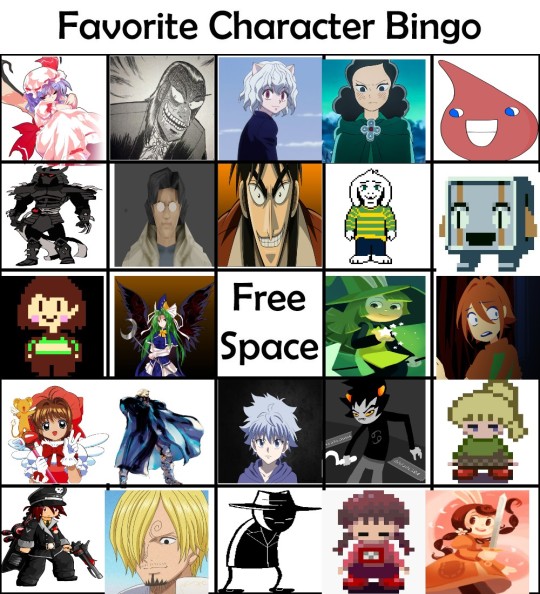
Here are my favourite characters
#remillia scarlet#Remillia touhou#Touhou#Touhou project#Mima touhou#Touhou mima#Mima#Washizu Iwao#Washizu#Washizu mahjong#Akagi:The genius who descended into the darkness#Miranjo#Ranking of kings#seventy-five#epic universe#z-demon#otacon#metal gear solid#solidus snake#kaiji itou#Kaiji:Gambling apocalypse#Asriel dreemur#Chara dreemur#chara#Chara undertale#undertale#balrog cave story#balrog#cave story#peridot
25 notes
·
View notes
Text
on a scale from Nat Rentalcar Finch eating god in a fervent rage to Tris Atdao Greer embracing the monstrous with unrivaled kindness how well do you straddle the line between psychosis and apocalyptic divinity and deal with being a vessel through which terrifying energies are channelled
#thinking on nat finch being a vessel for the garble and tris greer's delusion that he harbours the source of the apocalypse#thinkin about the garble's underground network of shifting caves and body horror and the apocalypse's Town That Is Alive#thinkin about nat The Tower finch bringing a cruel system crashing to the ground#thinkin aboht tris Strength greer embracing both the end of the world and himself with total love and kindness and#breaking cycles of viciousness and violence#love and violence and bravery in both#atdao#a rental car takes a left down rake street and disappears
38 notes
·
View notes
Text
Hoi there, guys! Im Inky Taco! Or just Taco if yall want :3
So the main Story I'm focusing on right now is a zombie apocalypse au with some characters me and my friends made up(I'm just not posting their's since I'm not sure if my friends are okay with it) so in the main time!I'm just posting some of my characters!
This story at the moment has 7 characters that I've made!(might update it again)
These characters are free to be asked questions,
Lisa ,-goofy troublemaker, and will try to focus on the asks but could potentially go off topic
Katie,- chill,listens,is a girl's girl,and is pretty good with advice
Christopher,-very shy, he'll try to answer asks,and is quite the expert on plants and animals
Lucky,- a small Lil medic,is cautious at times but would not mind answering asks
Elijah,-Rude.
And the two doggies named Mayhem and buck!- very friendly dogs! -as long as you're nice to them and their owners of course TvT(Ofc they won't answer asks), but they are available for support!
Also in the future the story might keep going buuut I'm not that good at making back stories, traumas,descriptions ect,BUT!! I will still try my ABSOLUTE best at this 💯!! Enjoy!!!(I'm going back to my cave ta think on the plot at the moment) (also sorry for making yall read so much T^T,here take these memes I found as an apology plz)




2 notes
·
View notes
Text
every time i re-listen to epic the musical, i can’t help but think of an odyssey story during a zombie apocalypse
#‘Fluffy you have already made posts about this’ AND YET I AM STILL HAUNTED#IT SLEEPS IN MY HEAD GHEN BANGS ITS POTS ANS PANS WHENEVER I THINK ABOUT THE ODYSSEY#WHICH RIGHT NOW IS WHENEVER I LISTEN FO EPIC#EVERY FUCKING TIME#I HAVE AN ITCH TO WRITE A ZOMBIE APOCALYPSE ODYSSEY STORY#‘So fluffy how would it go down?’ easy. Zombie apocalypse is a result of biowarfare from the Trojan war#wouldn’t be called the Trojan was but basically the Trojan was ya know?#the win the war by proxy#but oh no! seems this biowarfare backfired really REALLY bad (who could have seen this coming?????) and spread at an incredible rate#now stock Odysseus character must venture back to his home without being eaten and it prolongs his journey#also they don’t know about the backfire until they arrive at a cave for shelter and find it’s previous occupants…..#but yeah#there ya go for a pitch
6 notes
·
View notes
Text
Hey I have a post-apocalyptic science fantasy homebrew setting I’m working on called Skeleton City. Inspirations for it include Mad Max, Bioshock, and Studio Ghibli films. It contains copious amounts of bioluminescent fungi and blunt commentary on class disparity.
If you’re interested, check out what (little) I have written up so far on World Anvil:
landing page
the first level
#skeleton city#homebrew setting#writing#creative writing#original setting#post apocalyptic#post apocalypse#post apoc rp#science fantasy#caves
2 notes
·
View notes
Text
for a while now I've been trying to get into either designing concepts around apocalypse stories that aren't viewed or told from a white perspective, but also getting into reading and conceptualizing an apocalypse that really never stopped for a group of people, that of which, when looking at stories like fallout, for some...it's happening a second time.
and a lot of popular media really doesn't cover character experiences or environmental design based up on that the apocalypse for these characters never stopped or is happening in a quick devastating way a second time.
#irrelevant babble#but also kinda relevant to the [mostly corporate pushed] re-sensationalized popular hyping of a diluted storytelling of fallout#I speak for myself about this but also...maybe I do need to just find either another game (probably indie)#or book or show that touches on a different narrative and view of the apocalypse genre of fictional storytelling#I would say that's what we all should do but that's erroneous#because of the impact that said franchise has had it's harder to just drop it for something better for a lot of people#I hope there's at some point the same energy in finding other media about the apoc genre that people can get into#that's NOT based on fallout but is based in the storytelling of how to survive an apoc environment and situations thereof#much like how there's other ttrpgs that aren't DnD#*sigh*...it's a lot of work to get into at times...but at this current moment...it's worth the trouble to dig outside of the cave#and find some better light at the end of it
3 notes
·
View notes
Text
EXTENSIVE LIST OF DECENT TMA EPISODES
across the street. spooky story about what if you saw your neighbor getting changeling'd. the witness being a semi-stalker so she can't tell Anyone and only knows the victim well enough to know he's gone is a nice twist
do not open. not at all spooky story about a guy who gets given a weird coffin marked "dont open" that keeps trying to hypnotize him to open it and making weird sounds but he just fucking. freezes the key in a block of ice/wears noiseproof headphones and manages not to open it until it gets taken away by mystery delivery drivers. he just gets out of it completely scot free with some cash
a father's love. spooky story about what if your dad was a serial killer. accurate to have the serial killer dad be a cop. i'm so glad this was a standalone story and did not get some stupid lore expansion that tried to rehabilitate the Serial Killer Cop Dad
vampire killer. not at all spooky story about a homeless guy whos a fucking sick awesome vampire hunter and theyre like gross mosquito hypnosis vampires. the sequel children of the night is almost scary but then he kills the vampire for the first time and she explodes like a mosquito. the lore expansion where he saves the serial killer's daughter from her job at the demon church and they become roadtrip besties killing monsters overseas rules actually
anatomy class. perhaps the funniest horror story i have ever read. what if you were trying to teach an entry level anatomy class to a bunch of kids in the same white shirt and blue jeans with different cultural placeholder names but they were actually like. meat creatures who were taking the class to learn how to be shaped like people. theres a scene where the teacher is explaining how hearts beat and all of them hold up the animal heart theyre dissecting and they start beating in different rhythms and theyre like "which one is right?" and at the end of the semester they give him an apple filled with human teeth shaped like a smile and a nice note thanking him for teaching them good :). absolutely killer 4-koma comedy horror manga idea
binary. not at all scary. starts with the protagonist telling you shes a Real hacker and the horror stories about the dark web are STUPID. proceeds to be the dumbest fucking story youve ever read about an evil video of a guy eating a computer to put his brain in it and becoming a tortured chatbot.
book of the dead. spooky story about what if there was a book which as soon as you read it wrote an extremely brutal death for you to happen very soon, and every time you try to avoid your fate your death changes to be closer and more painful. i should probably not have listened to this as a kid with untreated OCD.
body builder. not at all scary story about a guy who goes to a gym but they let you get silly with it. they let you get four legs and no head and stitch a smiley face into your chest.
that's it!
#c.paradisi#its not that bad. out of 176 episodes thats a hit rate of almost 0.05%!#book of the dead was my creepypasta it scared me so fucking bad when i was 13#anatomy class is The goofy horror magnus ep but body builder is a heavy hitter#its so much funnier because its. its Late magnus archives???#in the middle of the series nosediving into boring apocalypse stuff its just like#here you go. the silly gym where they let you have all the arms you want#honorable mention to the episodes that are literally just stolen creepypastas#i know where you got that goddamn cave one Jonathan. ive read teds caving page
4 notes
·
View notes
Text
Maybe Nost's best story! Also his least fun. Definitely did not like reading most of it. Would recommend reading... maybe any of the others over this one?
I think with The Apocalypse of Herschel Schoen, Nost has managed to write a book which is haunted.
Stepping back a little. Herschel Schoen seems to have been conceived almost as a short story, which only happens to be as long as it is as a result of the (deliberately) belaboured and verbose prose used by all the narrators. It's much closer to The Northern Caves in this respect, which I remember as being mostly straightforward and intelligible, with only the highly-divisive ending leaving me with a dangling "??????" to grapple with. Meanwhile, with Floornight and Almost Nowhere, I often struggled to keep up with the object-level facts of what was even happening in the plot/world, and I feel like I mostly read those stories "on vibes", following them mostly in terms of their subtext.
So yeah, Herschel Schoen to me felt like it was using the "fairytale" format of being a Christmas story to streamline things as much as possible, such that both the object-level events of the story and the batshit conceptual-melting-pot subtext were more or less legible to me, despite Herschel's incredibly unreliable prose. There is a sense in which it feels like a children's story to me. It has very few characters, and those characters are extraordinarily archetypal.
So I do think Almost Nowhere retains its crown as Nost's most ambitious, most revolutionary, and most complex novel—if I say that I found Herschel Schoen "better", it's only because I feel I was able to understand it. It speaks more to my failure as a reader than anything.
In terms of my experience as a reader, it was fairly similar to that described by @recordcrash in his review. Most of the story is a fucking struggle to get through, mostly because of... the prose? The pacing? These issues are really the same issue: what few events occur in the book take ages to describe, and the fact that every recounting takes forever means that there physically isn't room to cram in more events. And as Makin Recordcrash puts it: I just don't enjoy hearing the thoughts of an unwell mind, particularly at length. All of Nost's books have it, this entirely-made-up concept which "you just wouldn't understand" but which it nevertheless will tell you about at length. There's Salby and mundum in The Northern Caves, there's Azad and the aliens in Almost Nowhere, there's whatever the metaphysics shit was in Floornight (I forgor), and this is the book that has the most of it, proportionally.
(My girlfriend bounced right off it- actually, let me use this opportunity to tell a story. When we first met, we were talking about the internet or something, and for whatever reason at one point I unironically said something like "oh yeah I read this cool novel set on a forum but you probably wouldn't have heard of it" and she just went "oh do you mean The Northern Caves?" and I briefly became convinced that she was some sort of psyop intended to oneshot me, a notion I have still not been able to shake over two years later. Point is her remark on the first two chapters of Herschel Schoen was something like "it's too Nostalgebraist for me", which I think is understandable.)
Anyway, like Makin, I struggled with most of the book, only for Chapter 21 to be so fucking good that it sort of retroactively made the rest of the book good, at least insofar as it was mostly necessary to set up such an audacious ending? Even knowing that this had been Makin's reaction, I wasn't prepared to believe it—again, usually Nost books are very much the other way around—but lo and behold, the twist is in fact very clever, very fun to read, and very aligned with my aesthetic interests.
All that said, I do feel like Makin sort of bombed through the book (by comparison, it's taken me almost two weeks to finish it), and maybe missed out on some of the more fun and interesting stuff the book is doing on a thematic level. Below, I'll try to delve into my interpretations in more detail.
I've seen a few takes from people that the main thematic throughlines of this book are a bit disconnected from one another, but to me this couldn't be further from the truth.
I identified four main themes, in descending order of prominence: "neurodivergence", "AI", "media", and "capitalism". I guess you could say "Christmas" is something of a fifth ur-theme, which dovetails into these in superficial ways:
Neurodivergence—the idea of "believing in Santa Claus" is framed as stunted development, a delusion which reveals someone to be less mature mentally than they are physically. The book is specifically concerned with contrasting dysfunctional "child" behaviour with functional "adult" behaviour, flipping these ideas on their head by having Ruth and Miriam basically lose it over the course of the story. A sister inverted. Also, the "preparations" needed to be made before Christmas morning are very much analogised with obsessive compulsions, right?
AI—like Santa Claus, something which promises to fulfil all our wishes, instantly, at the same time.
Media—particularly in terms of relations between Christianity and... secular Christmas, right? The story is very much riffing on the structure of Christmas stories specifically. To me, it feels like a world literally dreamed up based on Christmas stories. That, more than anything, is why it's set in New York, I think.
Capitalism—notions of "wanting", of meritocracy. I don't know, we all know "A Christmas Carol", I don't need to explain this one.
Like, if I had to guess at the genesis of this book, based on Nostalgebraist's comments, I feel like it's taking the starting point of "story about what if the AI doomers were right" -> "through the lens of Christmas" -> "[everything else in the story]". Of course there are tons of other influences in there, but those to me feel like the two ideas with the most explanatory power.
But even if you discount the underlying idea "Christmas", I don't think you could tell a good story about AI (in its current form) without writing about neurodivergence, media, or capitalism. If we're tasked with imagining a non-human mind, it makes sense to first imagine the most-non-human human mind, right? If we're talking about the machine's output, its facsimile of media, we have to talk about the real thing too, right? And if we're asking about the purpose of AI, what exactly it is we're trying to industrialise, what scarcity we are trying to erase, then we have to talk about capitalism as well! For me this was all perfectly obvious, I dunno.
I was pleased that I noticed many of the same things @weaselandfriends identified in his list of observations on the book. When it described the wall of doors in the living room, my mind went, "that's fucking weird!", though I didn't really think too deeply about it. The same things goes for all the anachronisms, which I think is one of the story's best gimmicks. Yes, for most of the story, they serve to create a "timeless" atmosphere, evoking all these Christmas stories at once, while simultaneously putting into doubt the reality of what Herschel and Miriam are describing.
But then, of course, with the twist, I think it's pretty hard not to read these as anything other than hallucinations conjured by the AI. And what I think is particularly brilliant is that the story at no point calls direct attention to the anachronisms as being of particular significance—you only notice them because you know enough "facts" about the real world to notice them—which naturally calls into question the elements of the story which are wholly ficticious, where there's no ground truth to compare against. Just how real are Herschel, Miriam, Ruth, anyone!? And does it even matter how real they are?
Part of the book's "magic trick", as I read it, is that both interpretations of Herschel's POV are able to coexist within the reality of the story. We can imagine that there really existed a boy perhaps called Herschel Schoen (just as we can imagine there really existed a guy called Jesus? This is silly, pretend I didn't say that) who perhaps lived in New York City and lived with some kind of delusion, perhaps regarding an Original Creation that only babies remember. Like, even this much isn't certain, perhaps Herschel is entirely hallucinated; the story is in fact preoccupied with the question of whether or not there's even any difference. Anyway, at some point, the AI apocalypse happens (I think this is one thing we can be pretty confident about), and for the AI's own purposes, Herschel is resurrected/recreated (again like Christ- disregard this aside!) in an "emended" form, where whatever changes are made mean that he is in fact right about the Original Creation and the future etc, his mind really was tampered with. The concept of "emendation" seems to me to be the biggest point in favour of the book overall believing that a substitution is not the same as the original; that the "transformation" of one shape into another does not mean it becomes the other, as its own history remains distinct (much as the "original" events of whatever happened to the "original" Herschel on the "original" Christmas Day can be said to have, in some sense, happened—and cannot, should not, be "forgotten"). But maybe these elements of the story were intended to be disparate, though, or related in some other way, and I'm just conflating them?
One of my favourite interpretations that I've seen raised in a couple of places is that Herschel's writings, with which he literally armours himself, are in fact literally protecting him against oblivion, because the AI can only learn based on the written word or recorded speech. It doesn't really matter what happens to the papers, so long as they are written at all. Herschel pours so much of himself into those papers so as to be understood, and in the end he is understood—if not by Miriam and Ruth, then by the only being he needs to be understood by: this machine. He secures his own existence, in at least some limited form, in the "Original Creation", simply through his writing. I think Herschel is the "most real" part of the story.
It's Miriam, though—the second-"most real" element—that I think makes this story haunted. It's the way she packs all those papers into a suitcase, and for the briefest of moments you can breathe a sigh of relief, that we're one step closer to understanding how this book came to be, in-universe. But immediately, it's obvious that this explains nothing, it explains less than nothing, because there are all these chapters which just don't fit, they can't be neatly contained in that suitcase. Bavitz draws direct parallels between the inexplicable frame narrative and the anachronisms, and he's absolutely right to do so. The story is often very careful about providing something which looks "quite right", at a glance, but the moment you think about it, this pit opens up under you. Something about this metatextual conceit actually makes my skin crawl.
It feels pat to say, "oh, that's because it's trying to evoke AI hallucinations". I feel like that's only part of it, because again, most of Nost's novels have this to some extent. But yeah, I think if you wanna read Herschel Schoen as a horror novel, then this is what is scary about it. Conceptually, everything with Miriam mainly recalls for me the idea of "crashes" from Almost Nowhere, which were one of the big horror elements there, the idea that the world you're walking around in is actually, imperceptibly, some kind of not-world filled with not-people. But more directly, I find myself remembering a bit from the third act of OCTO (a criminally underrated and under-discussed webnovel) where a superintelligence is trying to "resurrect" a human, and keeps putting her in increasingly-lifelike simulated "habitats" to try and create the right set of "inputs" that will make her function properly—i.e., without just like, screaming. I feel like that is what we see happen to Miriam in this book. I feel like, when the lights go out, at the end, it has nothing to do with light at all: it's more that the machine just no longer needs to simulate a world for Miriam, at all. The transmission stops. And then what becomes of her?
I think this sort of brings us to Ruth, doesn't it? A big point is made about how there's a difference between "Miriam" and "my sister, Miriam". As though in the latter, the reality of "Miriam" in the training data is watered down by all these tropes surrounding sisterhood. I mean, fuck, maybe that's where the incest stuff comes from, right? I feel like similarly, there's a reading for Ruth where the AI is first conflating these images of "a mother" with these images of "a terrorist". She acts like a fucking cartoon character for much of the book, as many of the less-well-drawn characters do, and I think that's entirely deliberate. As she draws more on the "terrorist" tropes, she stops being a "mother". And again I think this is what Nostalgebraist has always done so fucking well, in that the bullshit sci-fi allegory stuff can also just be read on an entirely character-driven level: here is a resentful, neglectful, ultimately abusive mother, here's the emotional reality of that, heightened and communicated.
I think this provides a vague stab at an explanation for the beating scene that Bavitz found so confusing. It's like the AI draws on this trope of like... the mother, in the kitchen, with the frying pan. It puts the pan in her hand. But it's not actually a frying pan, it's just the image of a frying pan. In reality, did Herschel's mother beat him? How did she beat him? Hell, maybe she didn't, maybe the AI just got so caught up in playing out the trope of the abusive parent that is gets to the point of this beating, and then just dream-logics itself to the next thing in its training data, where of course the beating never happened. I don't like that, it feels like we're gaslighting the kids here (which I think is very much the allegory intended) by saying it was just a hallucination. I think something like it happened in reality, and cannot, should not, be "forgotten". But I think the book does want you to think that its depiction does, in some way, break from reality. Hell, in much the same way that child abuse might be said to break the reality of family? Nah, that's too pat, isn't it?
I guess what I'm trying to get at here is that, ironically, I found the novel was at its best, and at its most human, when it was writing frankly about the experience of mental illness, about family, about institutions, about childhood. So what's maybe frustrating is that I'm not actually convinced Nost is capable of writing a... shall we call it a "normal" story about those things? A story with no metatextual bullshit, no sci-fi conceit, but a realist story. There are parts of all his books, where I really think that the explanation for why they are the way they are is that they are "bad on purpose", and all the bullshit is a way of turning these shortcomings into strengths. The self-effacing voice which whispers that the characters aren't sufficiently well-drawn, are too cartoonish—well, what if that was the point? What if there was a reason for that, in the story?
But honestly, I wouldn't have it any other way. Straightup, if these were normal stories set in reality, I wouldn't be fucking reading them. This is a web author who's trained himself on a bunch of classic lit, and a bunch of anime or whatever, and has smooshed those influences together and rocket-fuelled the result. It's inimitable. I deeply admire just how experimental Nostalgebraist's writing is. No-one else is doing it like him.
Anyway, what else. Herschel gets described as having a "shell" at various points, and Frederick's surname is "Eggert". Is that anything?
The Apocalypse of Herschel Schoen
My fourth novel, The Apocalypse of Herschel Schoen, is now available in full.
Merry Christmas to all, and to all a good night!
401 notes
·
View notes
Text

Since By Man – Pictures From The Hotel Apocalypse
When I walked away from writing about music in 2018, I felt very burnt out by talking bout everything that I listened to, as well as feeling as though I needed to keep up with every new release that came out. Essentially, I could only listen to a new album, no matter how much I loved it, for a week, because I’d have to rinse and repeat to check out the new releases of another week. The cycle would continue, and it just got so old to feel like I’m obligated to listen to all of these new releases that I frankly don’t care about, but I knew people wanted my thoughts on them. Granted, a lot of these albums I didn’t outright hate or even dislike, but I wish I could have been listening to stuff I truly do like, or discovering things I’d like more. It’s been so freeing writing about what I want and when I want. There are new releases that I really care about, but I’m writing about them and listening to them because I want to hear them, not because I feel as though someone wants to hear my thoughts. I want to hear my own thoughts on these records, first and foremost, and the cool thing is that I can talk about whatever I want. I made some rules to myself when I came back, and one of them was to talk about mainly new releases that I’m interested in, but I’ve had a lot of fun talking about older albums in a more retrospective format. I wanted to talk about albums that have anniversaries in any given year, usually a five, ten, fifteen, or twenty-year anniversary. Because this is my blog, and I don’t have to appease anyone, if I want to talk about something, I’ll talk about it.
I guess this is a big runaround way of saying that if I hear something that I feel compelled to talk about, regardless if it’s new, has an anniversary coming up, or it’s just a cool album. In that case of the album I wanted to talk about today, it’s a bit of the latter two. The album in question turns 20 this year, but it’s also a really cool album that I think more people need to hear. If there’s one thing I love, it’s discovering obscure bands and artists within my favorite genres, because these are bands that I’ve never heard of, but I’m sure a lot of other people haven’t, either. They never got the flowers the deserved, usually because they broke up soon after they released something, or they just faded away. They were in the right place at the wrong time, and that’s actually how I would describe the album I want to talk about today: 2005’s Pictures From The Hotel Apocalypse by Since By Man. These guys are from my home state of Wisconsin, and more specifically, they’re from my neck of the woods in the Milwaukee area. I found this album at my local FYE store, because I was checking out the clearance section (which is another one of my favorite things to do, because you can find hidden gems for a dollar or two at FYE or Half Price Books), and the cover art caught my eye, but I had never heard of them. I didn’t look them up until after I left, because the CD was only 99 cents. Of course I’m going to pick it up for 99 cents, because even if it sucks, I only got it for a dollar. How bad can it be, right?
Actually, it’s not bad at all – this album is utterly fantastic, and it’s one of the most unique albums I’ve heard in awhile, especially for the time that it came out. These guys have a really unique sound that combines mathcore, post-hardcore, electronic music, and some experimental / avant-garde stuff. This album came out in 2005, and by that point, mathcore was in full swing. Bands like Botch, Converge, and Cave In paved the way for other bands like The Dillinger Escape Plan, The Bled, Every Time I Die, and Car Bomb, just to name a few, but a lot of bands fell under the radar. Because the scene was so saturated by the late 00s, a lot of bands fell into obscurity. There’s a chance I read about this band in Alternative Press somewhere back in the late 00s, at least in retrospect, because they broke up in 2007, but I passed them by. I wasn’t even heavily into mathcore until 2009 or 2010, because I was listening to bands like The Number Twelve Looks Like You, The Fall Of Troy, and The Dillinger Escape Plan, but maybe I’ve heard their name somewhere. Even so, this record is a cool hidden gem, because it’s a band that should have been way bigger, but they never got the proper success they should have. I think that’s partially because of their label, though, as they were on Revelation Records, and they were more so known for hardcore, not metalcore / mathcore. I don’t know why they were on that label, but it could have been a case of the wrong place at the right time. They had the right sound, but they were on the wrong label, so they never quite broke out they should have.
There’s just so much about this album to really sink my teeth into, because it’s the perfect kind of mathcore album that I’ve been searching for. I like mathcore quite a bit, as it’s a more challenging and weirder version of metalcore that also encompasses progressive metal, post-hardcore, and hardcore punk, as well as facets of grindcore, but it can be a bit repetitive, generic, and formulaic as standard metalcore. Not for its song structures, per se, but the elements therein. As long as a band has chaotic, bending, and twisting guitar riffs, along with intense screams, maybe some catchy moments here and there, and some atmospheric and quieter moments, you’ll get a fanbase and you’ll be fine, but there are so many bands that do that. I spent some time the last few days trying to find some more mathcore bands from the same era that also might be obscure and underrated, but the ones I found were just okay. They were the epitome of what I just said, as they felt like clones of The Dillinger Escape Plan, Botch, or Cave In. They all felt like clones of stuff I’ve heard before, but Since By Man feels like something new and exciting. I think it’s mainly for their inclusion of electronic and synth-driven music. There are some songs with straight up synth on here, but it’s not like Attack Attack-styled crabcore. It’s done very tastefully, and it sounds really cool with the guitarwork and the harsh vocals on top of it.
The album’s also incredibly short, only 39 minutes long, and a lot of mathcore albums can reach an hour, partially for being part of progressive metal in some way, shape, or form. The songs are typically longer, but that can make or break an album sometimes. I hate how long mathcore albums can get, even these days, but a lot of the time, there’s a reason for it. This album is short enough to where it can still make an impression, because it feels long enough to make that impression. An album can be too short to really make a lasting impression, but it can also be too long for that impression to stick. If an album is too long, you’re more so just exhausted by the time it’s over, and the impression really isn’t there. Some long albums work, but they really have to be good, and they really have to make a smart use of the sounds that they’re going with, because longer albums get pretty exhausting after awhile, whether they’re too repetitive or just too overwhelming with how much is going on. This album, however, is the perfect length, and it makes a great impression, but it’s still heavy, engaging, interesting, unique, and kind of weird, so I’m all over it. It’s short enough to where I’m surprised it’s over, and I want to go back to it again. These guys are the epitome of a band that should have gotten way bigger than they were, but you need to hear this band if you’re a fan of 00s mathcore. There’s a lot to really love here, and it’s a record that’s criminally underrated. In the sea of metalcore and mathcore from the 00s, a lot of stuff fell into obscurity, and this band fell into obscurity for me, too, but hearing this has been awesome. I love whenever I find stuff for a dollar or two and it ends up being really awesome. That happens every now and again, and I absolutely love it every time, because it’s a great investment, and I find a great record.
#since by man#pictures from the hotel apocalypse#mathcore#metalcore#post hardcore#poison the well#converge#botch#cave in#the dillinger escape plan#heavy metal#metal
1 note
·
View note
Text
This is old news, but we're still gonna share it.The Davids were present at the Viagra Boys filmed performance at Salt Shed on 2-24-23. That show can now be watched on the band's Youtube channel, and our discussion of the band, their previous album, Cave World, and that night's performance can be heard on The Davids Soundcloud. The episode includes a few samples of the band, Katy Perry's performative tears on American Idol, as well as Brock Baker's vocal talents. Maybe listen in before VB's next album drops?
#viagra boys#katy perry#Joker#Goofy#Brocks Dubs#pere ubu#negativland#shrimp#return to monkey island#vaccine#creepy crawlies#cave world#the salt shed#live music#live sober#apocalypse#post apocalyptic#synthesizer#post punk#hooligan#barf#hedonism#post punk revival#new wave#devo#idles#amyl and the sniffers#sleaford mods#scumbag steve#meme
1 note
·
View note